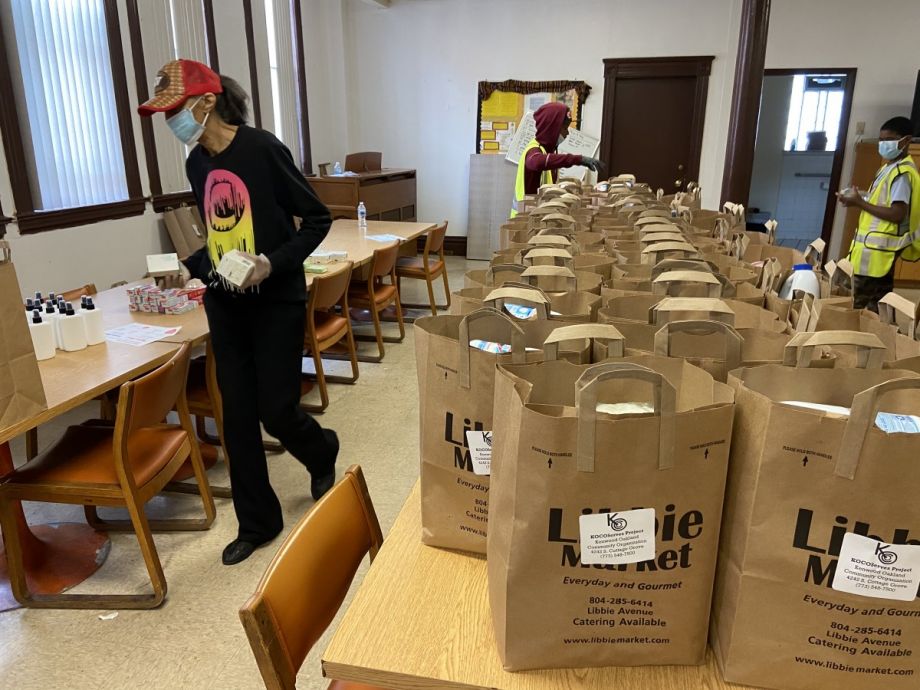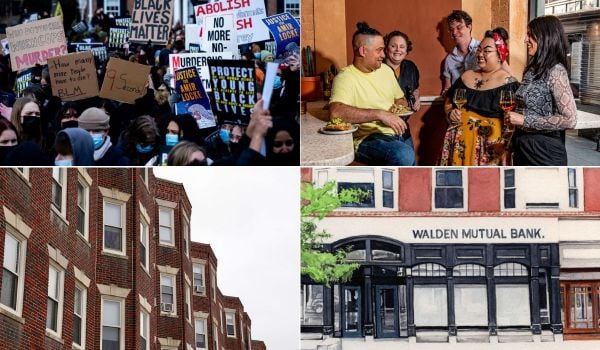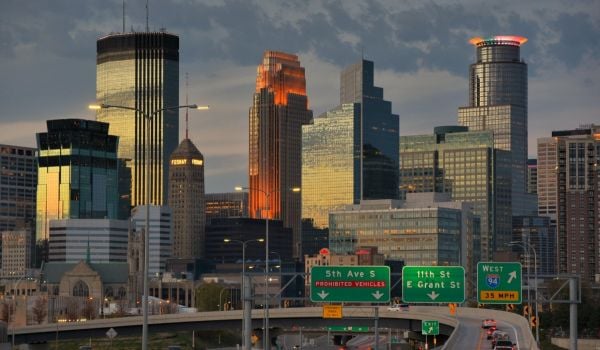This is the second of two op-eds from The Shared Prosperity Partnership. This collaboration of The Kresge Foundation, the Brookings Metropolitan Policy Program, the Urban Institute and Living Cities launched in 2018; it brings together local leaders in eight U.S. cities to address challenges to inclusive growth and provide data, research, and access to national experts, networks and financial resources. We asked leaders in each of these eight cities to describe briefly the considerations, strategies and tactics required to advance more racially inclusive recoveries in the wake of the COVID-19 pandemic. In today’s part two of this op-ed we hear from experts in Minneapolis-St. Paul, Chicago, Cleveland and Milwaukee.
Minneapolis-St. Paul: Let this Be Our Moment. This Economy Calls for Reflective, Authentic Leadership.
By Tawanna Black
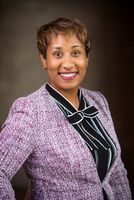
Tawanna Black
We don’t need a history lesson to know that Black, Indigenous and other workers of color suffer devastating immediate and lasting effects from major shocks and disasters of all kinds. Yet, time and again, recovery plans and solutions are crafted without accounting for the pre-existing depths of income and wealth inequality. We are witnessing this yet again, as cities across the nation respond to the COVID-19 pandemic and pursue inclusive recovery. This is a clarion call for new leadership and new action.
In the 10-year period of recovery since the Great Recession, Minneapolis-St. Paul has only narrowed the racial wage gap between white workers and workers of color by $521 (Source: Brookings Metro Monitor). In that same time, GDP for the region increased more than $77 million (Source: Federal Reserve Bank of St. Louis). This contrast in economic failure and success illustrates the historic dissonance in regional approaches to closing racial wealth gaps. For too long, people with the power to do better in every sector have focused our gaze on necessary, yet insufficient solutions to address the impacts of racism, but not on racism itself. Inclusive and equitable education, workforce, housing, and business capacity solutions are critical, yet none in isolation can compensate for the depths of wealth extraction, isolation, and despair imposed by generations of policies designed to restrict power and wealth to one race of people.
The ravages of COVID-19 have illuminated the opportunity and necessity for new leadership and action. Prior to the pandemic, McKinsey reported that the U.S. Economy could grow by $1 to $1.5 trillion by 2028 if actions were taken to close racial wealth gaps (Source: McKinsey, The Economic Impact of Closing the Racial Wealth Gap). At the Center for Economic Inclusion, we are challenging private and public sector employers and policy makers to have the courage and the conviction to put meaningful action behind lofty public statements, rather than slip comfortably back into privileged recovery initiatives that earned Saint Paul and Minneapolis rankings of 272 and 273 out of 274 cities for inclusive recovery following the 2008 economic crisis (Source: the Urban Institute Inclusive Recovery in U.S. Cities). We are in relentless pursuit of a racially inclusive economy. Join us to build it.
Chicago: Deeply entrenched inequities are in clear focus. We chose bold action.
By Dr. Helene Gayle
The COVID-19 crisis has highlighted the inequities that exist in our country. In Chicago, 74% of COVID-19 cases and 76% of deaths are in Black and Latinx communities.
These deeply entrenched inequities have been brought into clearer focus, as thousands of people across the country raised their voices to denounce the murder of George Floyd and the impact of racialized policing experienced daily by Black communities. Chicago has had its own calls to action to address racial inequality, including when in 2014, 17-year old Laquan McDonald was murdered at the hands of Chicago police.
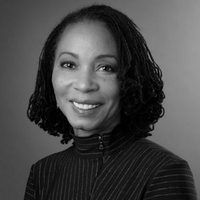
Dr. Helene Gayle
While we cannot erase years of fear, anguish and anger felt by Black and Latinx Americans, Chicago leaders have an opportunity to make this right. How we heal, recover and rebuild our strength as a city and region is more critical than ever.
As a key civic and philanthropic entity in the region, The Chicago Community Trust is doubling down on our commitment to confront the Chicago area’s racial and ethnic wealth gap and ensure we don’t return to the status quo.
This spring, with the United Way of Metro Chicago and other partners, we created the Chicago Community COVID-19 Response Fund and raised more than $34 million for nonprofits providing essential services such as food and direct cash transfers to the families most affected by this crisis. This fund and other efforts have kept thousands of families financially afloat during the crisis. However, we are not done.
In October, we launched Together We Rise, a new initiative led by the Trust that unites philanthropic, business and community partners to undertake three complementary and mutually reinforcing efforts: to provide funding, advocate for policy reform, and encourage business practices necessary to amply and sustain results. To date, we have raised $26 million in philanthropic support and more than $600 million in corporate commitments to advance this work. As it continues, we will be guided by these questions.
Can we rebuild an economy where all families, no matter who they are or where they live, are financially secure and not a paycheck away from poverty? Can we transform our social safety net and income support policies to put cash in the hands of those struggling to make ends meet, such as providing direct cash assistance or expanding earned income tax credits? Can we increase and scale the availability of affordable, flexible financing for entrepreneurs and business owners of color? Can we incentivize investment in neighborhoods that have been disinvested for far too long?
We believe the answers are yes and will continue to play a leading role in shaping an equitable recovery for Chicagoans.
We cannot pretend to know what lies ahead. This moment is unprecedented; we choose hope and bold action.
Cleveland: Who gets the money? Equitable recoveries begin with equitable access to federal funding.
By Bethia Burke
If ever we were faced with a choice of two tomorrows, it’s now. Systems of racial exclusion – health, economic, education, criminal justice – overlap, intersect, reinforce one another, and drive unacceptable disparities in outcomes in Northeast Ohio and across the United States. Inaction is inexcusable.

Bethia Burke
The Great Recession was hard on Northeast Ohio and decade-long recovery was long, slow and uneven. Recovery for Black and white workers was starkly different. Persistent employment gaps between Black and white workers widened to a peak of 20 percentage points in Greater Cleveland during the worst of the Great Recession. White employment rates recovered to pre-recession peak levels more quickly than Black employment rates. Current national unemployment rates foreshadow that these trends will repeat themselves.
Recovery will not automatically be racially equitable and, if history is any guide, is likely to be inequitable without specific, deliberate strategies to act differently. This means that as much attention is being given to funding and policy questions concerning “how much” and “for what,” we must ask the looming question: “who will benefit?”
At the Fund for our Economic Future, a funding alliance dedicated to advancing economic growth with equitable access to opportunity, we are striving to advance job creation, preparation and access, and combat systemic racial exclusion. We recognize we must respond to the current economic and social climate. We can start with what we do well. This means offering critical data analysis, building awareness of systemic issues to raise our collective consciousness and taking decisive actions that promote equity.
For example, we aim to increase equitable access to federal funding allocated to advance economic recovery. Our approach: increase transparency of available resources, through tracking and communicating open opportunities and increase ability of under resourced organizations to apply for funding.
While the causes and pace of the Great Recession were different than today, understanding what happened and how our region fared relative to similar places can inform strategies needed now. Now is the time when systems and structures are built and reinforced. Now is the time to commit to rebuilding right.
Milwaukee: Reroute capital flows, change the course of disinvestment in communities
By Ellen Gilligan and Greg Wesley
This moment calls for more than a return to the pre-pandemic status quo, a reality which was inadequate for many of Milwaukee’s residents of color.
MKE United, a partnership between the City of Milwaukee, the Greater Milwaukee Committee, the Greater Milwaukee Foundation, the Milwaukee Urban League, and the Local Initiative Support Corporation, has worked with the broader community to create a shared and inclusive vision and action agenda for Milwaukee’s downtown and its adjacent neighborhoods. The agenda is focused on changing systems that have created, perpetuated and reinforced racial disparity.
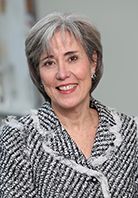
Ellen Gilligan
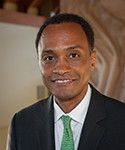
Greg Wesley
The inequitable impacts of the global health pandemic, a sharp economic disruption, and protests sparked by the murder of George Floyd and the violence against Black people across America for generations have brought an even sharper focus to tackling Milwaukee’s racial disparities.
As we work to advance a more equitable future for our city, we are encouraged. A coordinated strategic approach has helped align philanthropic, public and corporate partners around shared prosperity.
We know the lack of capital flow to disinvested neighborhoods is a significant barrier to advancing equity. Strategies recently implemented by MKE United partners provide a roadmap for transforming systems, including addressing resident displacement and investing in commercial corridors. Both help provide direct investment into communities while also leveraging results to broaden a conversation about system-wide transformation. We must translate these successes into long lasting change which only happens with political will and sustained prioritization.
Systems have been explicitly and implicitly designed for exclusion. While we work to address the consequences of those systems, we must also transform the systems and ensure our community changes course. Prosperity has not been equitable in our city, and without equity, prosperity is unjust. Changing unjust systems is the only way to advance sustainable and equitable transformation. This moment is an opportunity to finally change course.
Tawanna Black is the founder and CEO of the Center for Economic Inclusion, in St. Paul, Minnesota.
Dr. Helene Gayle is the president and CEO of Chicago Community Trust.
Bethia Burke is the president of the Fund for Our Economic Future, in Cleveland, Ohio.
Ellen Gilligan is the president and CEO of the Greater Milwaukee Foundation and a co-chair of MKE United, in Milwaukee, Wisconsin.
Greg Wesley is SVP for Strategic Alliances and Business Development at the Medical College of Wisconsin, and a co-chair of MKE United in Milwaukee, Wisconsin.

